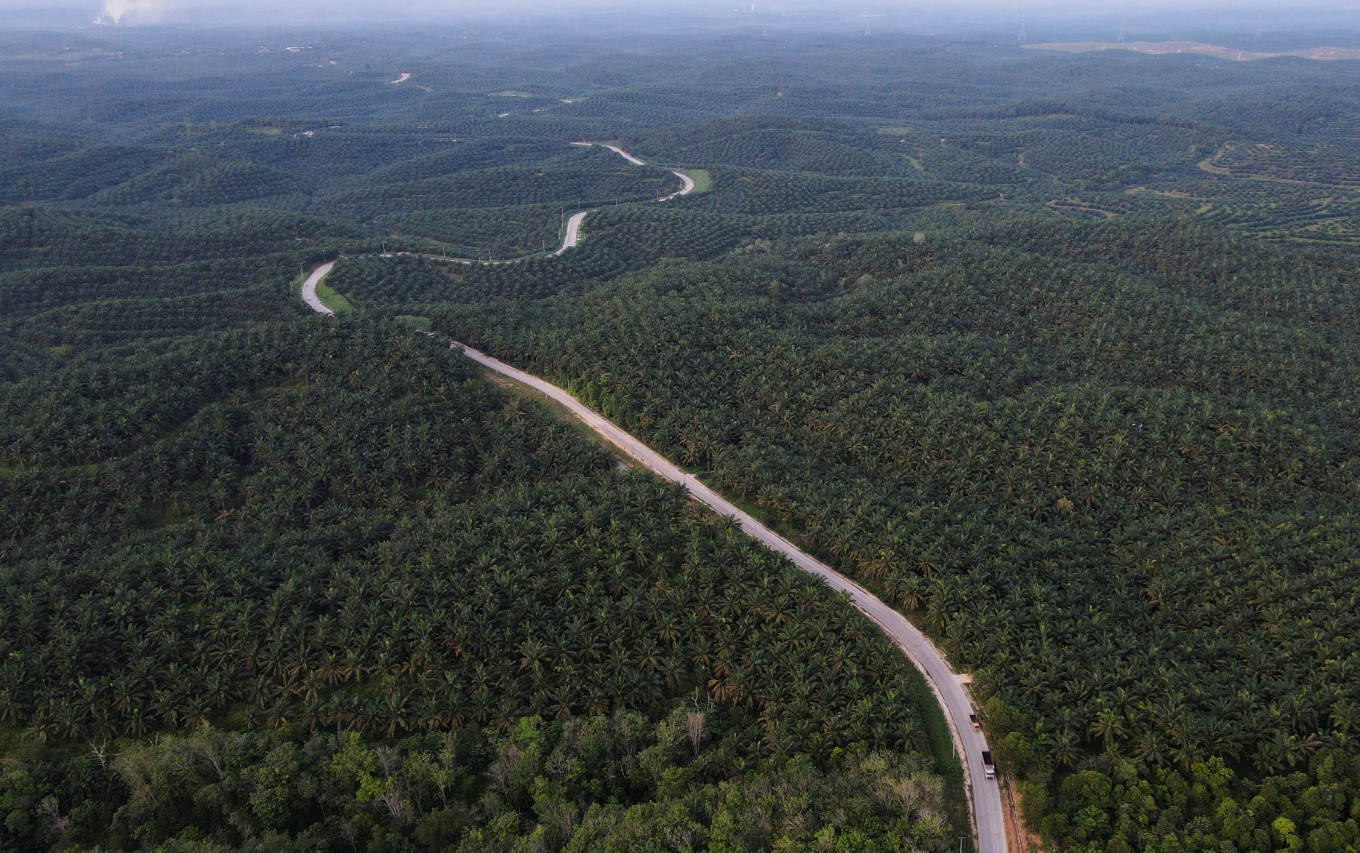Popular Reads
Top Results
Can't find what you're looking for?
View all search resultsPopular Reads
Top Results
Can't find what you're looking for?
View all search resultsEuropean Union responds
As part of our renewable energy policy, biofuel made of palm oil is classified as high-risk for driving agricultural expansion into high carbon-stock areas, such as forests, wetlands and peatland.
Change text size
Gift Premium Articles
to Anyone
A
t a time when Indonesia has a ban on the export of palm oil products, it is odd to be reading once again about the supposed European Union ban on palm oil from 2030 onward as The Jakarta Post stated in its editorial on April 29.
The EU indeed -- as previously explained in these pages -- has no such ban and will not have one. To illustrate, in 2021 Indonesia exported more than 2.6 billion euros (US$2.73 billion) worth of palm oil to the EU, an increase of more than 9 percent compared to 2020. The EU is one of the largest single export markets for Indonesian palm oil. Our import duties for palm oil are the lowest in the world.
What the EU does have is regulatory measures governing palm oil and biofuels made from palm oil. One example is an anti-subsidy measure on palm oil-based biodiesel from Indonesia. The measure was taken based on EU law, after an objective analysis, in line with World Trade Organization (WTO) rules. Companies or countries can take the EU to court in case they see injustice. Nobody has.
As part of our renewable energy policy, biofuel made of palm oil is classified as high-risk for driving agricultural expansion into high carbon-stock areas, such as forests, wetlands and peatland. This does not ban palm oil-based biofuel from our market, but EU member states are not allowed to include this biofuel consumption to comply with renewable energy targets.
Indonesia (joined by Malaysia) has filed a WTO complaint against this measure. The procedure is ongoing. The EU will respect the WTO verdict.
Recently, the EU has come forward with a proposal for a regulation to support the global objective to halt deforestation and forest degradation by 2030. Both Indonesia and the EU have signed up to this objective as part of the Sustainable Development Goals.
Once adopted by the EU member states and the European Parliament, our policy will promote deforestation-free global supply chains, boost consumption of sustainably produced commodities and prevent commodities and products that may be associated with deforestation and forest degradation from being placed on or exported from the EU market. This, in turn, is expected to reduce EU-driven greenhouse gas emissions and biodiversity loss.
Once the new law enters into force, only deforestation-free and legal products will be allowed on the EU market or can be exported from the EU. All commodities and products, whether produced within the EU or imported from outside, will be subject to the same requirements.
In any event, the future law will not impose a ban against any country or product. “Deforestation-free” and legal producers, even from high-risk areas, will continue to be able to sell their products to the EU.
***
The writer is European Union ambassador to Indonesia.











